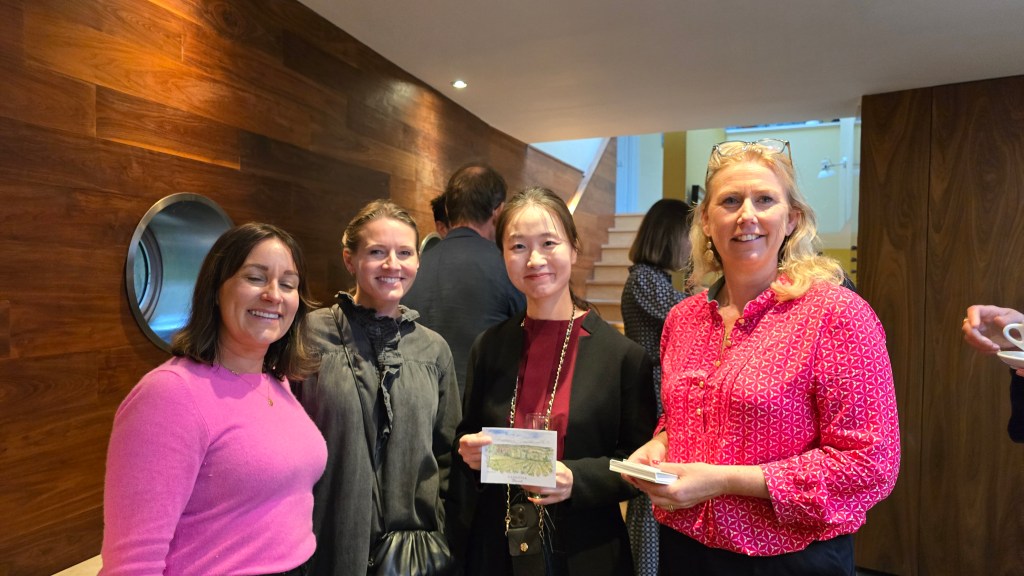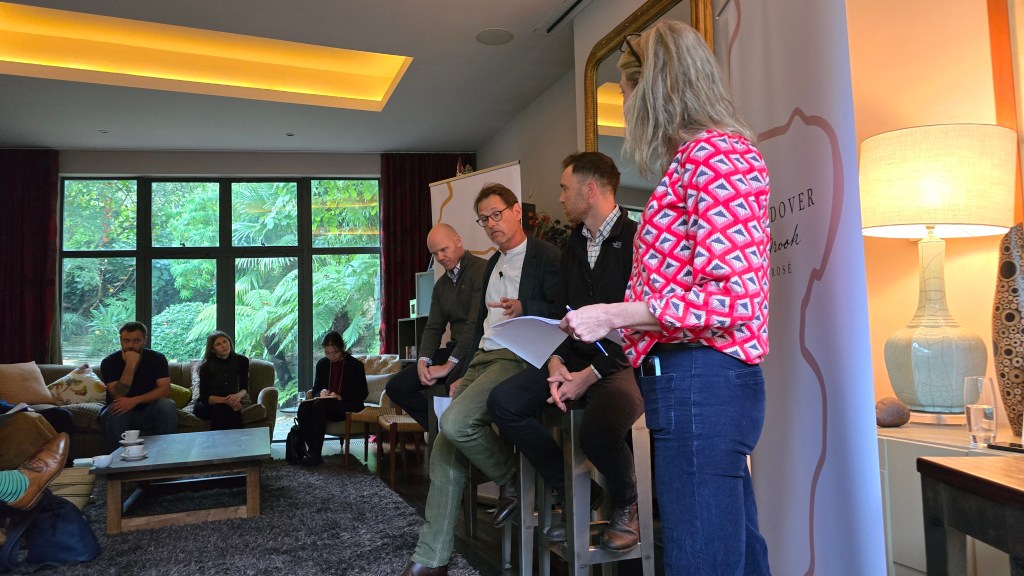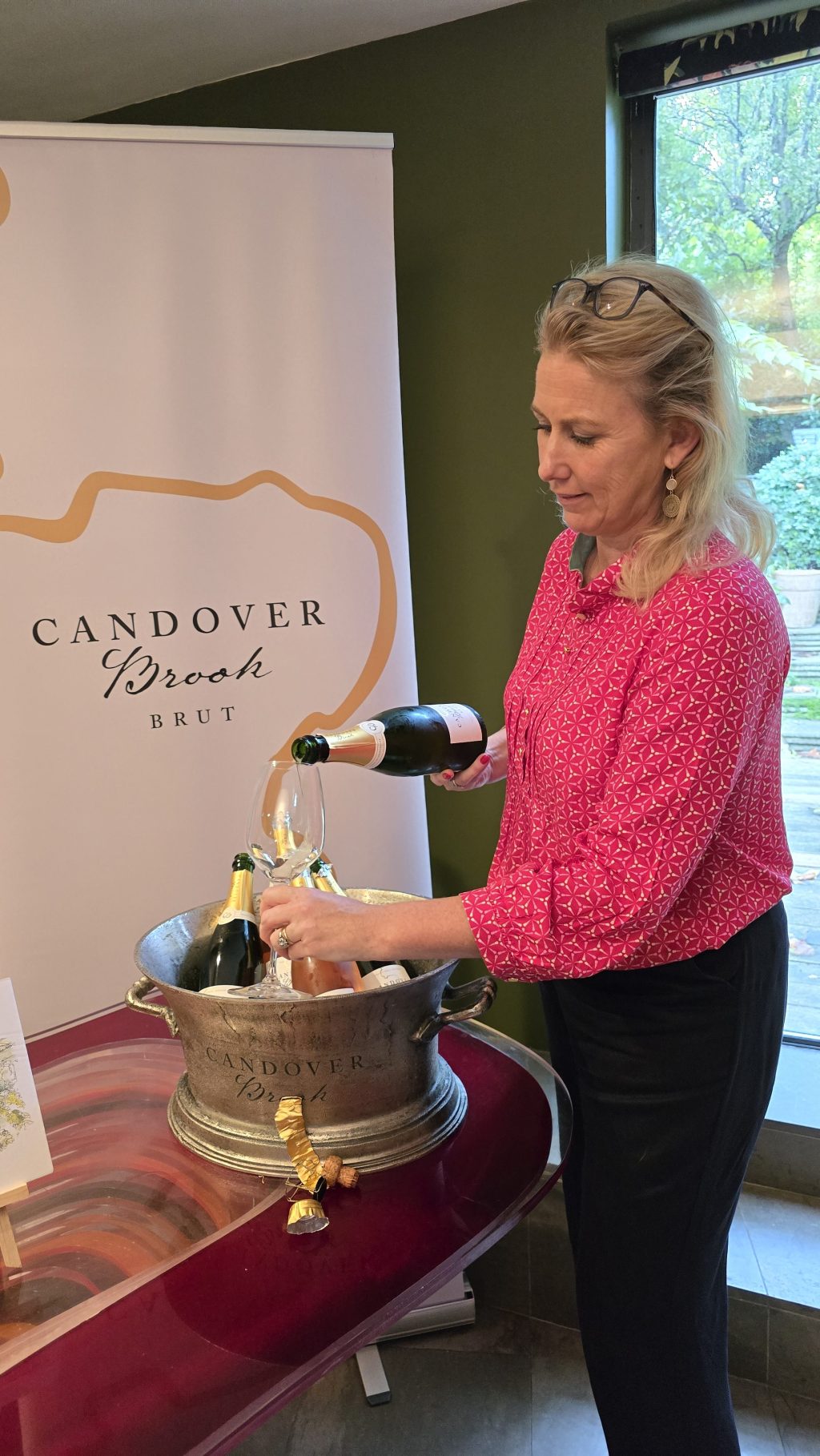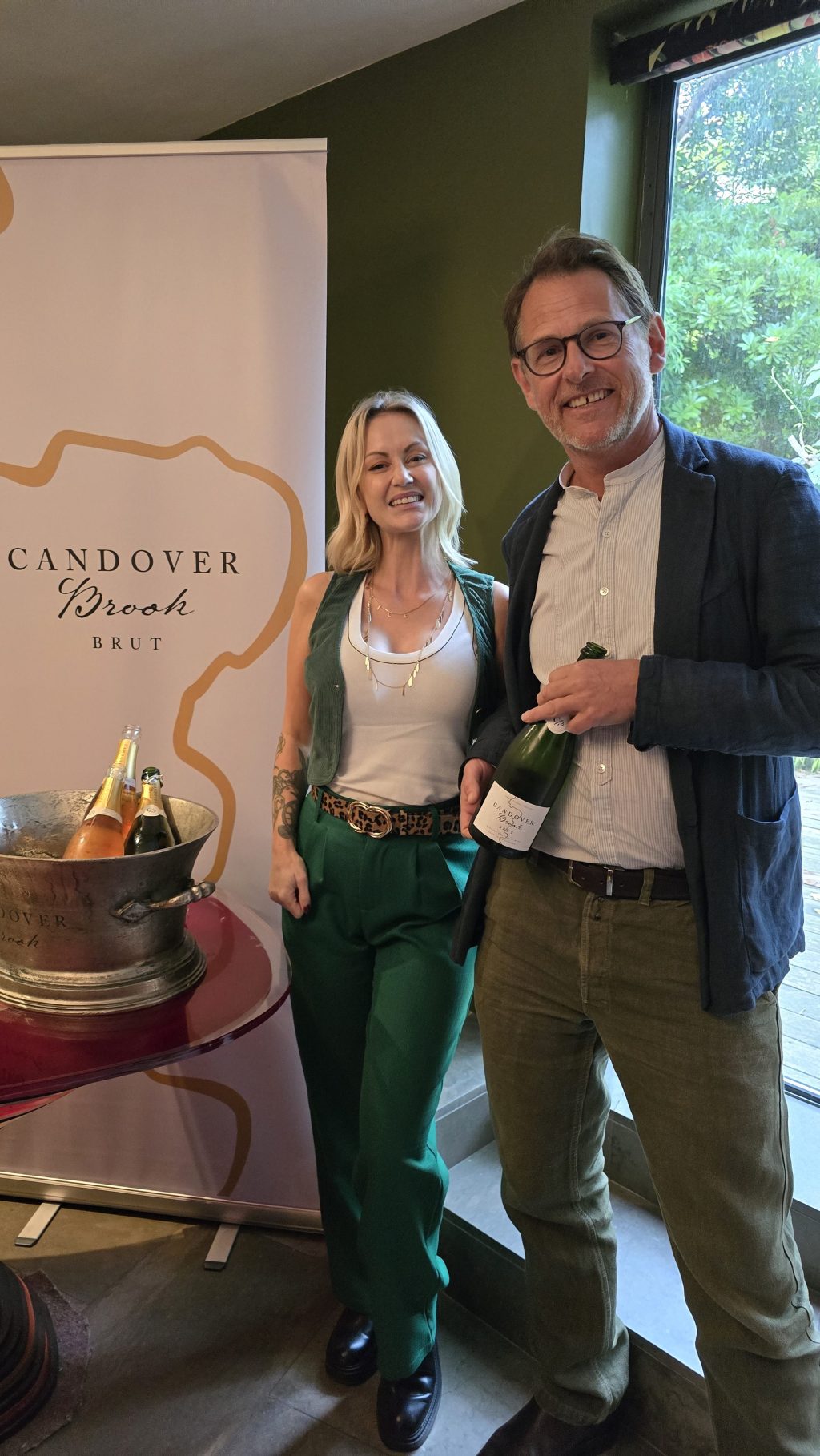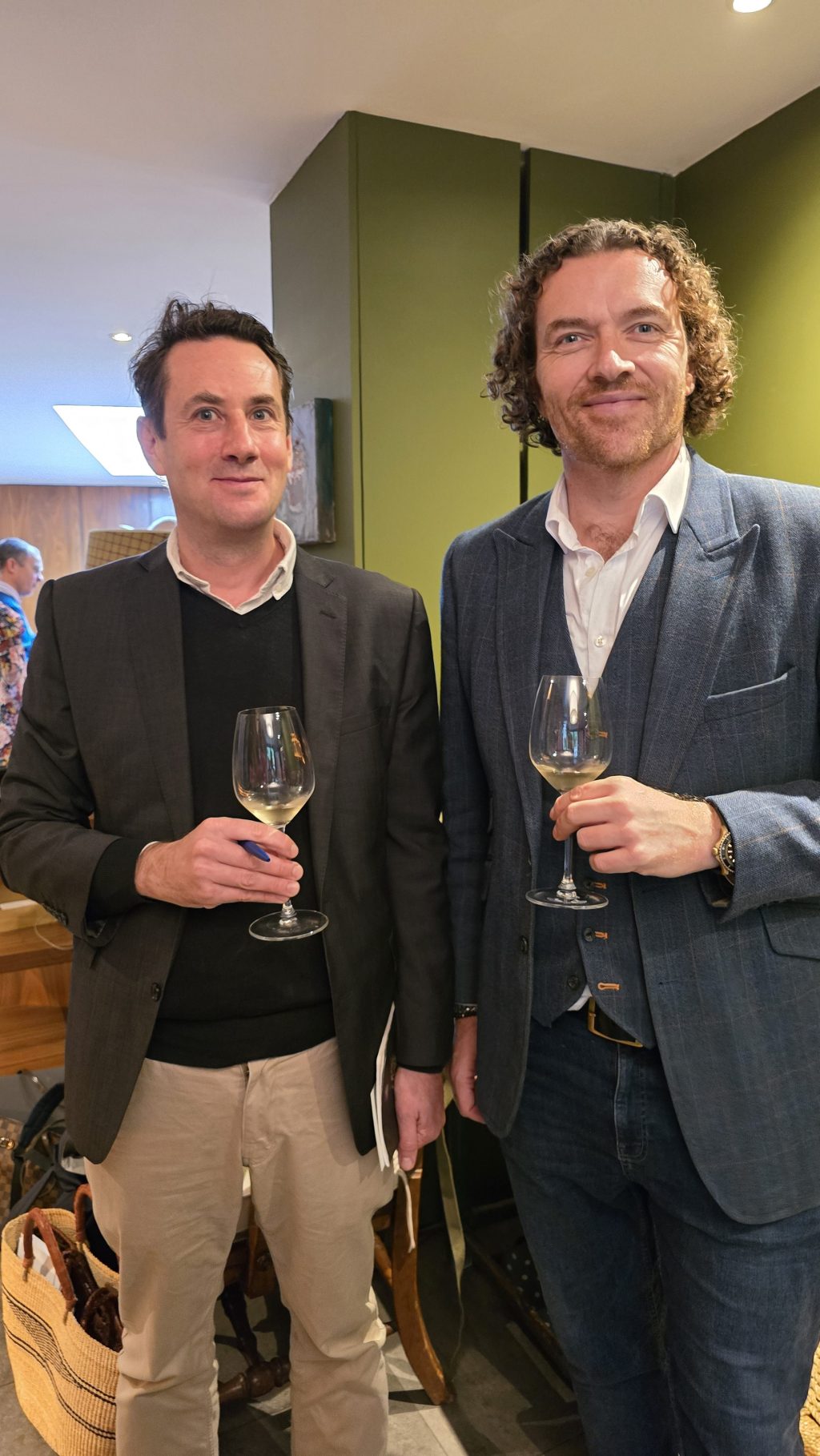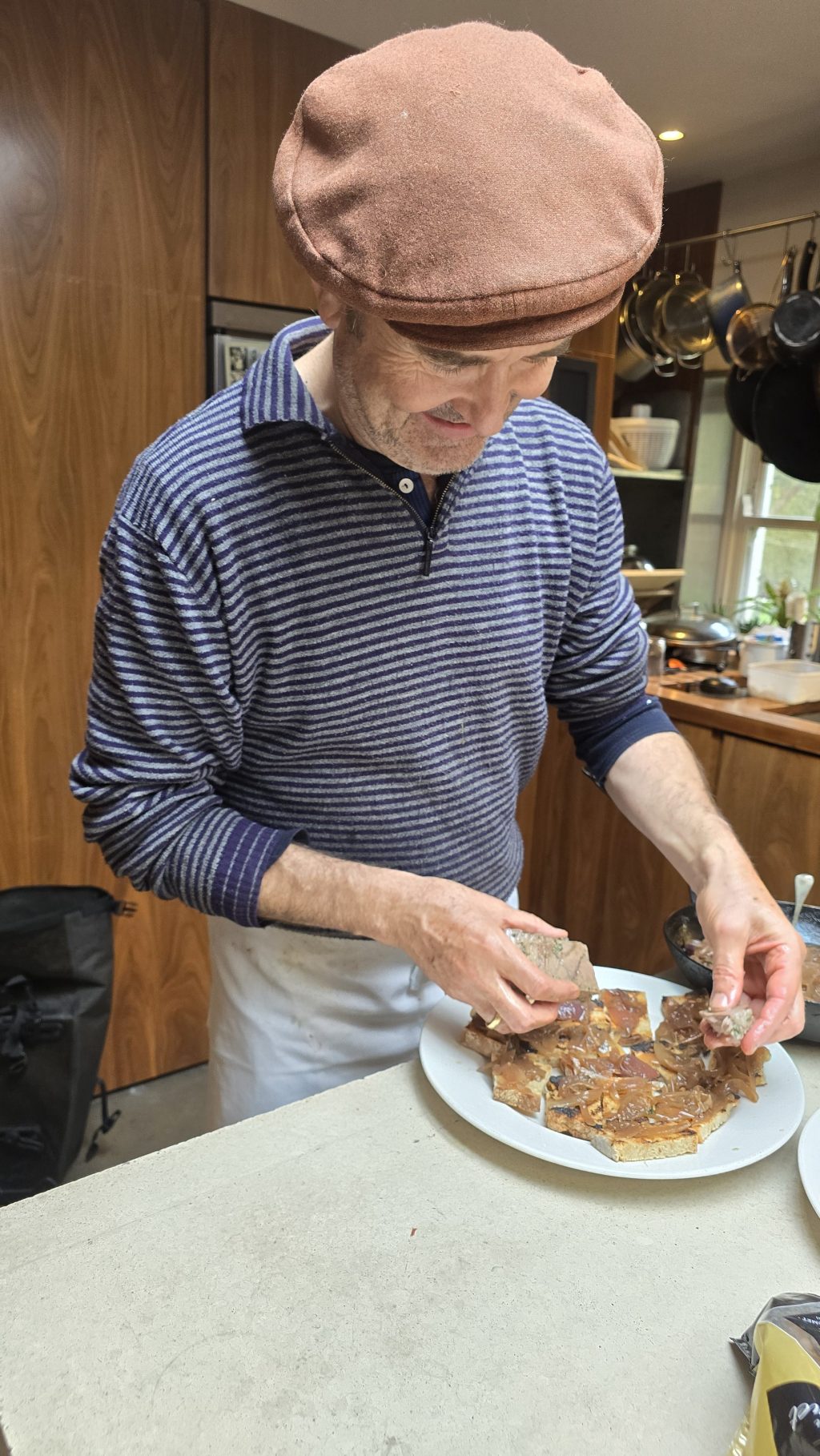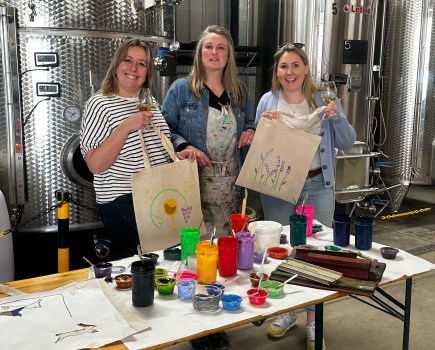A most enlightening panel discussion for Candover Brook vineyard. Hosted by co-founder Mark Sainsbury, in his own London abode, the event brought together members of the UK wine press to delve into the unique story behind Candover Brook’s award-winning English sparkling wines and the regenerative farming principles that underpin their viticulture.
The panel included Mark Sainsbury, vineyard manager Samuel Philippot, and Craig Livingstone, director of farming for the estate. Together, they shared fascinating insights into how the vineyard’s philosophy is shaped by a deep commitment to sustainability, soil health, and community, while balancing these values with the need for a profitable business.
Mark Sainsbury opened the discussion with a look back at the origins of Candover Brook, crediting his father, Lord John Sainsbury, as the driving force behind the vineyard’s creation. Inspired by their family’s close friendship with renowned winemaker Hervé Jestin, Candover Brook was born with a mission to produce world-class sparkling wine, but also to lead the way in regenerative agriculture. Jestin, known for his expertise in non-interventionist winemaking, serves as a consultant for the vineyard, bringing a blend of tradition, innovation, and respect for nature that permeates every aspect of their production.
Mark, with his background as a restaurateur and his long-standing involvement in sustainable food systems, emphasised that their principles of conservation and regeneration aren’t just a hobby. “This isn’t a hobby; it’s a business,” he noted firmly. Yet, as he pointed out, these values do not conflict with profitability – in fact, they see long-term financial gain through practices that nurture the land and biodiversity. “We expect to make more money by following regenerative principles and getting out of the way of nature.”
One of the key takeaways from the discussion was the vineyard’s deep focus on soil health. “Balance in the soil is essential. If the vines have too much vigour, the fruit will be fragile,” explained Samuel Philippot. The team experiments with various regenerative techniques, from using cover crops to sheep fleeces as weed suppressants, in an effort to find the best ways to enhance soil vitality. Craig Livingstone added that while the benefits of these approaches might not appear immediately on a profit and loss statement, the long-term results – healthier soil and better crops – are undeniable. “Soil quality is key,” he stressed.
The heart of Candover Brook’s regenerative approach is a willingness to give everything time. Mark Sainsbury acknowledged that they are at the beginning of a long journey, focused not on growing the vineyard’s size, but on perfecting everything they do, step by step. He also expressed hope that Candover Brook’s example would inspire other winemakers to adopt similar practices, educating both peers and consumers about the vital importance of soil health and sustainability.
Following the panel discussion, we were treated to a tasting of three of Candover Brook’s sparkling wines: the Brut NV, Rosé NV, and a special preview of the 2019 Brut. Each bottle told its own story, full of the vineyard’s elegant complexity and unmistakable connection to the land. Accompanying the wines was a delicious selection of tapas, expertly prepared by Mark’s friend and former business partner, Samuel Clark, co-founder of Moro restaurant.
The vineyard itself, nestled within the 2,000 acre Preston Farm, is a testament to the Sainsbury family’s conservation-driven ethos. The chalk stream running through the valley, home to the rare English white-clawed crayfish, is celebrated on the wine’s label – a symbolic nod to their dedication to the natural environment. As part of their commitment, Candover Brook donates 50p from every bottle sold online and in Hampshire to the Hampshire and Isle of Wight Wildlife Trust, supporting crucial conservation efforts to protect this endangered species.
What stood out most from the day was how Candover Brook is as much about community and legacy as it is about wine. Their work extends far beyond the vineyard, championing regenerative farming practices across their Hampshire estates, restoring ancient woodlands, sequestering soil carbon, and enhancing biodiversity. Their estates are carbon neutral and LEAF-certified, reinforcing their commitment to sustainability at every level.
For those looking to enjoy an outstanding English sparkling wine that reflects both the elegance of its terroir and the integrity of its production, Candover Brook is a must-try. As they continue their journey, I look forward to seeing how their regenerative principles will influence the future of English wine – and inspire others to take a similar path.
For more like this, sign up for the FREE Vineyard newsletter here and receive all the latest viticulture news, reviews and insight




